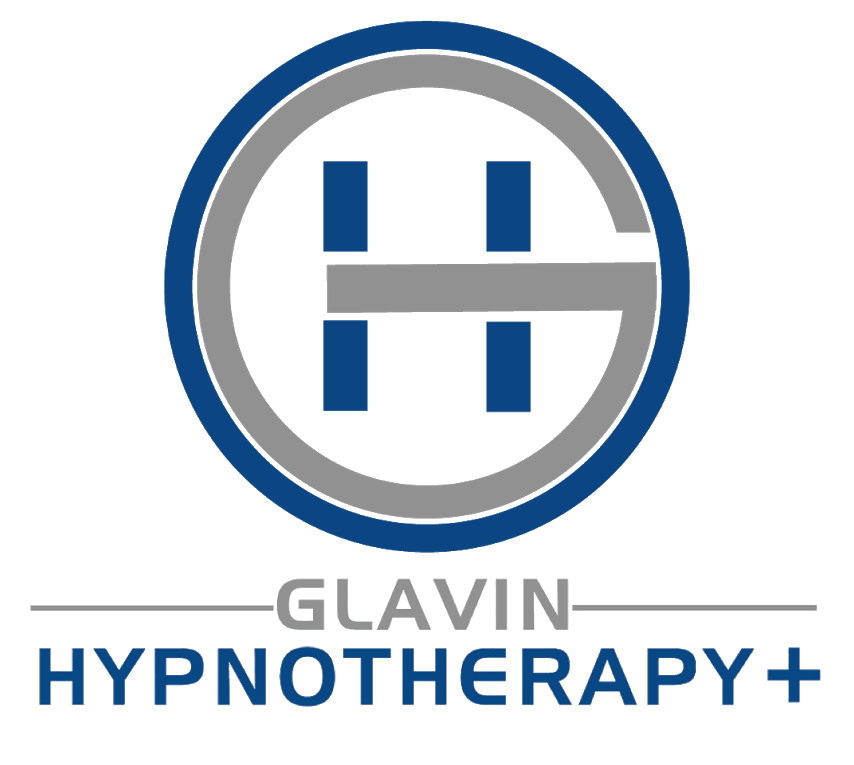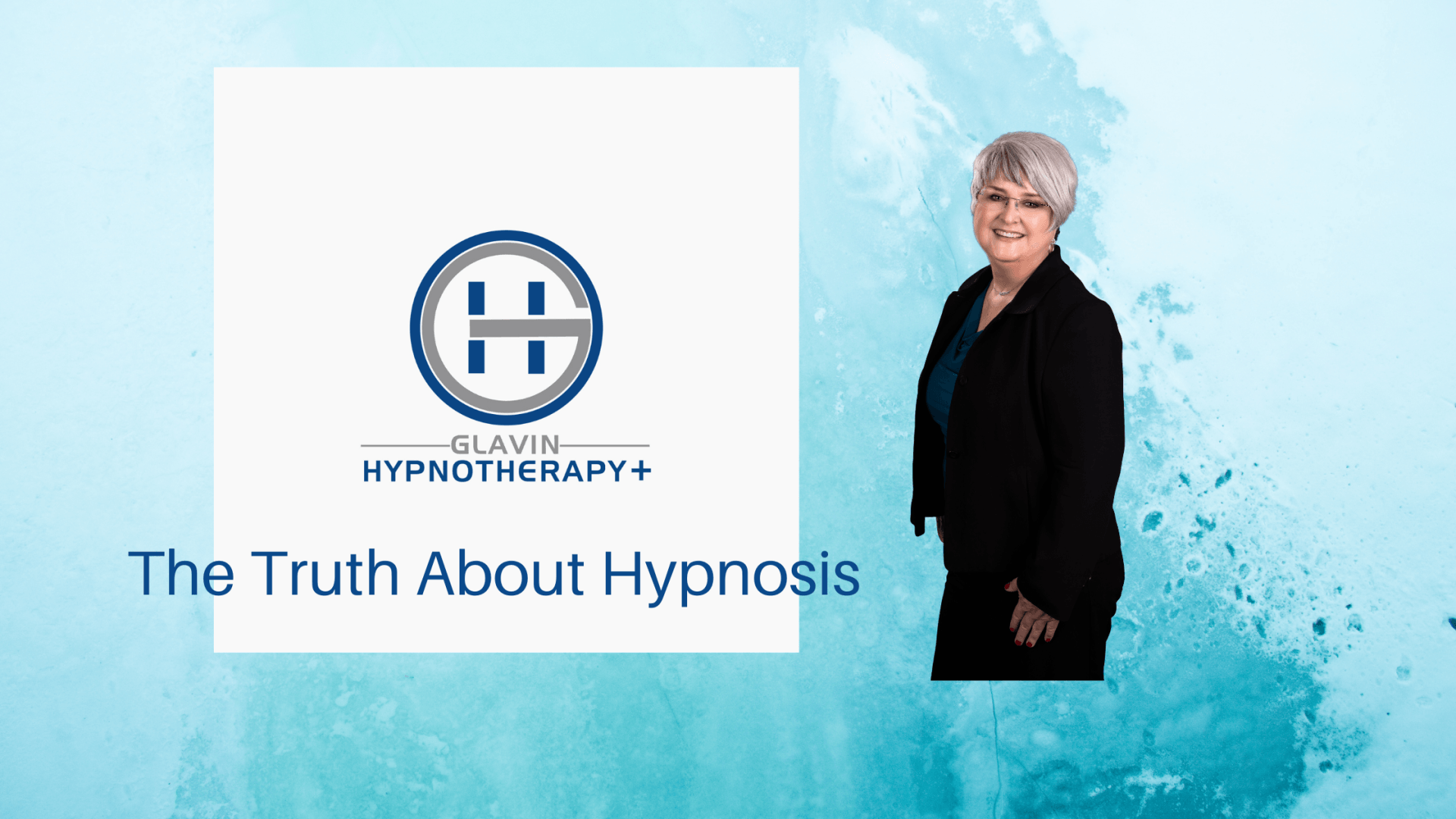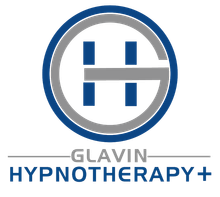By Karen Glavin and Angela Lewis Radio Interview
•
January 22, 2021
Welcome to Business Innovators Radio, featuring industry influencers and trendsetters sharing proven strategies to help you build a better life right now. Angie Lewis: Thank you. Welcome to this episode. I'm your host, Angie Lewis. On the show today, we have Karen Glavin with Glavin Hypnotherapy Plus. She's had this business for 22 years, and they are located in O'Fallon, Missouri. Karen, thank you so much for joining me. Karen Glavin: Thanks, Angie. Glad to be here. Angie Lewis: Will you tell our listeners a little bit more about your background and how you became involved in your current industry? Karen Glavin: This is not a place where I ever thought I would be. That's what a lot of people think about hypnosis. It's got stigmas and all sorts of different things behind it. I was one of those people that believed in those stigmas. My brother, who was an analytical engineer, a very, very smart, intelligent man, went to somebody to quit smoking. In one session he was able to quit smoking, and he had to know how and why, so he went and became certified. Karen Glavin: He would come to all of our family functions and he would bring ... this was back 20-something years ago ... a boom box so he could play some music and what we call script books. They're just basically the wording prescription, the words that we use when we're giving suggestions. He would come with those to every family function. I would say, "No, get away from me." I wouldn't let him work with me. Karen Glavin: I started going through a really, really tough time and things were getting really bad, and he just ... it was Christmas of '93 and he said, "Hey, let me work with you." He started to tell me more about really what hypnosis is and he started educating me on the process, that it was approved by the medical association, the American Medical Association and the British Medical Association in the '50s, to use as a tool to help with healthcare. Karen Glavin: It's also been approved by the Catholic Church in the '50s, where a lot of people, including myself, thought it was Satanism and bad stuff. Those are the reasons I wouldn't let him work with me. I finally gave in. I was not the nicest sister because I made my mom stay in the room. I knew she would protect me. Karen Glavin: Anyway, we did the session, and it was a very basic session at that time. He didn't have all the tools that I use now, and didn't have years of experience behind him like I do now. He did a very basic session with me, and I was able to make a major change in my life that I needed to do that was going to affect a lot of people. I did make that change within three months. I wanted to make sure that if I did make that change, I was doing it right and doing it for the right reasons. Karen Glavin: I did, and then things got harder, and I started shutting down and not functioning. I wasn't in a great place to begin with. I wasn't strong enough for the changes that I had made. I called him up and I said, "You think you can jump in here, buddy? Do something with me." He did another session with me, and it was just like I was completely released from all those pressures. When I opened up my eyes, I thought, "Man, the world just really needs to know about this." Karen Glavin: That's how I came around. It just came on by accident and I sort of fumbled into this career. It's been unbelievable, what I've been able to see happen in clients' lives over the years. It's just something that I absolutely love. The industry is growing. It's been growing for years, but it's really cool now that the medical community is now finally doing medical research on it, which we didn't have back then. Karen Glavin: I actually saw a research study about a year or so ago, and I was reading through the research and at the very bottom of it, the doctor that had done the research said that there isn't a lot of research out right now because ... this was an older study, not a brand-new study, because there's quite a bit out there now ... but he was talking about because of the stigma, doctors didn't want to get their names connected to it. Over the years it's evolved, and people are really starting to understand. That's where I was from when I first started this. I really just wanted people to understand what happened to me could probably happen for you. That just turned my whole life around. I've been doing this ever since. Angie Lewis: That's really amazing. It's one of those things that people don't talk about often. Can you talk a little bit about who your perfect prospect is? What type of people do you work with? Karen Glavin: That's a hard one for me. Everybody asks me that question all the time. "Do you work with just smoking? Do you have a specific, or athletes? What is it that you work with?" I have a system that I use that works with just about anything, whether they're coming to overcome problems or they're coming to enhance their lives in some way, whether it's be a better athlete, build creativity or whatever. Karen Glavin: That really has always been a challenge for me on what would be the perfect prospect. Mostly I work with a lot of smokers, people wanting to quit smoking, and that I love, especially because most of the time it's just going to be one session for them. I love to be able to do that for people, and they leave and they'd had this thing that's been controlling them for so long. Karen Glavin: Also, working with athletes. To be able to take somebody who's kept his vision and his dream and his talent, and they've only been able to get themselves so far with it, and be able to take them far beyond what they actually thought they could do. As you know, when you're working with an athlete or athletes themselves, they just realize there's so many different things that go into what's holding them back, what's keeping them from being what they want to be, or are they having constant injuries? Karen Glavin: You know, those are things that the mind can be causing to keep them from succeeding because they're not thinking they're worthy of, or whatever the challenge may be. Also when it comes to those injuries, healing faster when you're using hypnosis, and that's where that tool, working along with what the American Medical Association said way back in the '50s, using that tool to help them heal faster and be able to get back into what they love doing. Karen Glavin: Then I'm also pediatric certified, so I work with children as well. I work with athletes from all different ages, all different degrees, whether it's just a weekend athlete all the way up to professional could be used. I know Tiger Woods and Michael Jordan, they actually, from my understanding, traveled with hypnotists when they were doing their sports when they were at their peak. Angie Lewis: What are some of the misconceptions about your industry and the work and the results that it produces? Karen Glavin: There's a lot of misconceptions, and everybody likes to blame it on Hollywood, but it actually goes back to the 1700s. That's the really sad part for me, is it hasn't changed. It's starting to change, but it's taken this long for people to respect this industry and to understand it. There were these incredible doctors back in the 1700s that would go. Karen Glavin: There was one in particular that went over to Calcutta, India, a very, very intelligent man, ran a hospital, and he would use hypnosis for anesthesia, so that people that are doing surgery, they wouldn't have any pain. It always made me think of the old country, Western movies when I was a kid. They'd have a board between the teeth and they were cutting out the bullets. I'm thinking back then, the 1700s, this man, this educated man, is doing these surgeries, and they literally ran him out of town. Karen Glavin: It was story after story like that. People think you're asleep. They think you're not in control, especially when you watch stage shows. What you perceive isn't really what ... what we perceive is happening is happening, yet the hypnotist never has control. We are just giving suggestions, and it's up to our clients or the show for people to take them and put them into their own actions. There's a lot of little pieces that go together in there, but then there's a lot. Karen Glavin: Then you go back to the religious community. For years, people would come up to me and say really nasty things because they thought that this was Satanism. They thought it was bad, and, "How dare you do this kind of stuff?" I remember going into nutrition stores and talking to them about doing referral customer things, and they tore up my cards when I walked out because of the type of industry it is. They didn't understand what it is. They didn't understand the bigger picture of it. Karen Glavin: That still, to this day, is out there. Actually, there was a post on one of my Facebook posts recently. Somebody responded back to it in a really negative way. I was deciding whether to contact the person and explain to them, or just to let it go. There's a lot of misconceptions out there. There's just so many. Then Hollywood, they've played around with it quite a bit too. Angie Lewis: Yes. Yes, they have. Will you talk a little bit deeper about how you help them? I know when we talked before, you mentioned the power of the subconscious mind and that's the root of everything that we deal with today. Karen Glavin: Everything's stored in your subconscious mind. Under hypnosis, I like to take it down to easy terms, but this is what I will tell clients. You're basically going to sit in my chair, sit in the chair, relax. They're going to be listening to music, and I want them to ignore me. They're thinking about maybe a dream vacation or a vacation they've taken in the past. Maybe if they like to hunt, or if they're an athlete, they will be thinking about their sports. We've talked a little bit ahead of time about ideas, and just basically ignoring me. Karen Glavin: They just start to relax. Again, they're allowing themselves to relax. It's not me. All I'm doing is talking. I have no control over what's actually happening. Then the goal is to get to the root cause, get rid of what is causing the problem or keeping them from going forward or whatever it could be, get rid of that, and then just filling them up with really wonderful suggestions, rebuilding them back up again, and really that's it. Karen Glavin: Now for me, my sessions, I book out a two-hour time period. The sessions are about an hour to an hour and a half long. We have plenty of time to just sit back and talk and have the client get very, very comfortable with what we're doing or we're going to be doing. When I say we, I mean the client and myself. Then with the session, for the most part, the actual session is about 45 minutes or maybe sometimes a little longer, sometimes a little less, just depends on the client. Every time you're hypnotized, it's different. If you were to come Monday, Tuesday, Wednesday, Thursday, Friday, every day the way you felt and what you experienced would be different, because it just depends on the mood of the day. Karen Glavin: The first time you come, you might feel a little stressed, a little nervous. You may not relax as much. You may hear everything that's going on. You may come back the next day, just relaxed more. You know what's going to happen now. You're going to maybe hear part of it, maybe hear not part of it. Usually by the third session, people, if they need that many, usually come in and sit down and just say, "Let's go." Karen Glavin: They're ready to go because they love the relaxation, they love the feeling. Sometimes they'll go really, really deep. Then there may be a day where they may have had some problems at work before they came or some traffic issues and they're a little bit stressed, so they're not going to relax as much. Every time you're hypnotized, it's different. Angie Lewis: Okay. That's a really interesting point. How would someone know when it's time to come and see you, or that the hypnotherapy would be what they need? Karen Glavin: Basically when they identify a problem, but most people come when it's the last resort. "I've tried everything. I don't know what else to do. I'm just going to try hypnosis because I just don't know what else to do." That's what a lot of people say when they come. It's so cool, because they just sit down in the chair, they relax, we have the session. The peacefulness, it's just so peaceful, feels so good. Karen Glavin: You open up your eyes, the problem's gone, and they're relaxed and they feel peaceful. They take that feeling with them for about a day or so. A lot of times my clients will tell me what a wonderful night's sleep they've had after the session or that next day. An actual session itself is almost like an eight- to ten-hour nap. It's very relaxing, and you feel really, really good after the session. Angie Lewis: You said the actual session feels like a 10-hour nap? Karen Glavin: Yep, a 10-hour nap. Angie Lewis: Can you explain it? Can you elaborate a little bit more about that? Karen Glavin: It's just because they're able to relax everything. You're relaxing all of your muscles, your mind, everything is relaxed. A lot of times people will come in with neck pain or shoulder pain and they leave without it, or had a headache when they come in, they leave without it, just because they were able to relax so much. That's just the side effect of hypnosis. Angie Lewis: It sounds very powerful. Karen Glavin: It is. It's wonderful. It's a great way to make a living. It's a great way to help people. It's a great way to overcome problems, because it's so fast. We're dealing with the subconscious mind right there, and getting in and getting rid of the root cause and then making things change. Angie Lewis: What are your thoughts about the overmedication of people? I know there's a lot of talk about that. How does hypnotherapy align with medicine or not? Karen Glavin: That's a really tricky question for me because I'm not a medical doctor, so what I say is just opinion. I can't make any medical claims or anything that, and I make sure that every client hears that and knows that before we work with them. Karen Glavin: What I know when I'm working with a client, and that's the area I'll address, is there are so many ways of overcoming problems, and your mind knows what it is, and your mind knows your body. We can go in and start asking the questions, and the mind knows what it can be and helps people to overcome those problems. A lot of times people have experienced anxiety and just edginess and all of those kinds of feelings, and it could just minimally be one session. Karen Glavin: I remember being in class. This is 20 something years ago. There was a lady there who had experienced panic attacks, severe, severe panic attacks, and she was not able to get out of the house. Somebody just told her. They had hospitalized her for a little while. They had had her on all sorts of different medications, nothing worked. Her friend took her to a hypnotist, and one session, that was the end of it. Karen Glavin: Our mind is very powerful. Since we go right in and work with the subconscious mind as a hypnotist, we're working right there, it just knows what to do and fix the problem versus putting band-aids on it. That's okay to say, because in this day and age, you have to be very careful how you say things, but your mind's very powerful and it knows you. Karen Glavin: You'll be amazed. If I could only just say, be able to put it out there, what's happened in people's lives since they've been here in this office, it just truly is amazing. That's about all I probably should say right now, as far as the medical. Angie Lewis: That makes sense. I think that clear distinction about your subconscious mind being connected to your body, it makes sense how hypnosis could be right for people who are looking to have problems solved. Karen Glavin: Correct. Angie Lewis: In terms of hypnotherapy professionals, what type of person would be great to go into this industry, since it seems as if the industry is growing? Karen Glavin: I would say somebody with a heart, somebody that really wants to help, somebody that's got a lot of common sense, and somebody who's really going to pay attention. I have a lot of clients that will come here and say, "Oh, I know how to do this and I know how to do that, and I've been hypnotizing people for ever and ever," but that can be dangerous because your mind is very literal. You want to be very, very careful. I mean, there's a lot of people out there that say, "Hey, I can do this," and they don't get certified but they go out, and that's really hurt our industry really bad. Karen Glavin: Going back to the mind being very literal, I can talk to the mind, and if I'm going to tell you, when we're working with a weight loss client or weight reduction client, "You're going to burn 500 calories in an hour," you're literally going to start developing a fever or could develop a fever. You've got to be very careful with the wording you use. Karen Glavin: You have to have somebody who's going to be open to pay attention to all of the little things that are involved in what we do, and in real life, how important your words are. When you're working with the literal mind, things that have been said [inaudible 00:18:33] a little creative. There's so many different ways of hypnotizing people. There's no specific way, but you need to have some education behind you. Angie Lewis: What inspires you most about your work? Karen Glavin: Oh, my gosh, inspires me, is to be able to watch somebody made changes. I was working with this friend who's a personal trainer, and he does a lot with kettlebells and he does a wide variety of different things. He basically wanted to go to Ireland to do this program. He was the only American that was invited to go and be part of this program. He's from St. Peters, Missouri. Karen Glavin: He had to qualify. Part of the qualification was he had to take a kettlebell half his body weight, and he had to take it from the ground up one side of his body and on that same side back down, but he couldn't get it on the other side of his body. Couldn't make it all the way up and then all the way back down. We did one session. He was able to do it immediately. You can actually see it, video on my Facebook page of him doing that. Karen Glavin: Anyway, he was able to do that, and because it was able to do that, he qualified to be able to go to Ireland. He brought the program back here to the States. He's had many people come through the program, and very successfully. The really awesome thing that happened this year was he just hosted a training in the United States for that program. The people from Ireland came over, the trainers came over from the program and were training the Americans, all because he was able to make that one change. Angie Lewis: That's very powerful. In one session, this happened? Karen Glavin: Correct. Angie Lewis: That is very powerful. What did you wish people knew about your industry? Karen Glavin: I wish they would look at it as just something that's a great way to overcome problems, something that you would respect versus not respect, to realize that we do not have control over you. We can't make you do anything that you wouldn't want to do. If you go watch a stage show, you can watch different people on the stage show and you can see how each one will act a different way. That's different personalities will do different things. It has nothing to do with what the hypnotist is telling them to do. It's more of that's their personality and how they're going to respond. When you're looking at our industry, people are thinking, "Well, he's got a lot of control over her and he's making her do these things." That's not really what's happening at all. Karen Glavin: Those are some of the thoughts that I have as far as what I'd like people to look at our industry, to look at it as a tool that you can use to enhance your life, whether it's overcome problems, whether it's you're creative and you are wanting to write a book but you have a block, or you just want to be able to take your talents far beyond what you thought you could do. There's just so many areas, working with children all the way on up to adults, that you can do to help people overcome problems. Karen Glavin: I've worked with families. I've worked with children and families. I've worked with the parents. I've worked with people with surgery. When you have surgery and you have hypnosis, your body heals so much faster and you're back out and about. It's just that you get to get in, you take care of the problem, you're done with the problem, and you get to go on with your life and enjoy the changes that happen. Angie Lewis: Karen, thank you so much for the insight on hypnotherapy. Thank you so much for joining me and sharing your experiences. If people want to learn more about you, about hypnotherapy, how can they reach you? Karen Glavin: You can find me on Facebook at Glavin Hypnotherapy+. You can contact the office at (636) 240-8786, or check out my website at glavinhypnotherapy.com and my email address. You can just click on it and email me from there. You can private message me. A lot of times people would prefer to do that over talking over the phone, but either way, you can contact me. I am in O'Fallon, Missouri, and I'm waiting and excited to be able to work with people and show them really more of the incredible abilities that their mind and their body have. Angie Lewis: Perfect. Thank you so much. I really appreciate you joining me today. I look forward to talking to you in the future. Karen Glavin: Thanks so much, Angie. Angie Lewis: Thanks for listening to Business Innovators Radio. To hear all episodes featuring leading industry influencers and trendsetters, visit us online at businessinnovatorsradio.com today.













